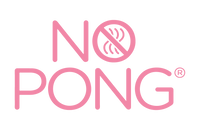We love working with innovative and pioneering brands that seek to make a difference to our world and, most of all, our family.

Your Trusted Partner for Natural Beauty and Slow-Living Lifestyle Brands in Indonesia
PTMUM has been actively working with brands from Australia, New Zealand, Norway, Denmark and USA since 2015.
We work with intellectual property consultants and legal advisers to obtain government registrations, product liability insurance, business licences, work permits, import licences and periodic renewals so that you don't.
We understand how difficult, and most importantly, cost prohibitive it is to penetrate new market with a highly regulated import process.
When you choose us as your distribution partner, you can be confident that your brand and products are always up to date with the Indonesian regulations.
As part of new brand onboarding process, we provide comprehensive checklist of documentations required from you to ensure a smooth and efficient registration process.
Unlock Co-Branding Opportunities with Mummasphere
Driving Organic Growth Among Indonesia's Premium Consumers
At PTMUM, we specialize in creating strategic co-branding and marketing campaigns tailored to our core audience—discerning consumers who value premium, natural, and clean-living products.
Our mission is to raise awareness of clean living principles and educate the Indonesian market on the benefits of natural, non-toxic products. We focus on long-term, organic brand growth rather than short-lived, unsustainable trends—especially when launching new brands in Indonesia’s highly competitive beauty and moms-and-babies sectors.
To amplify your brand presence, we partner with a curated network of trusted key opinion leaders (KOLs) across the beauty, wellness, and travel lifestyle niches. Through authentic storytelling on social media, influencer campaigns, and experiential events, we help connect your brand with like-minded, loyal communities across Indonesia.
Flexible Distribution Strategies to Fit Your Brand Goals
Choose One Channel—or Tap Into Them All
PTMUM gives you full flexibility to choose the distribution strategy that aligns with your brand’s vision and margin expectations. Whether you prefer a single-channel, direct-to-consumer (D2C) model or a multi-channel retail approach, we tailor our solutions to support your long-term growth in Indonesia.
We understand that many western brands are built around D2C sales, which offer strong margins and customer control. However, Indonesia’s retail landscape—and consumer behavior—tells a different story.
With an average fertility rate of 2.5 children per woman and approximately 1.6 million births each year, the mother and baby care market in Indonesia presents enormous potential.
Brick-and-mortar baby stores are widespread and easily accessible—often located within just 5 kilometers of one another across urban and suburban areas.
By partnering with us, you gain the opportunity to tap into both online and offline distribution networks to maximize reach, relevance, and sales—without compromising your brand integrity.
Building Strong Partnerships with Premium Retailers
Our Core B2B Focus: Independent Baby Shops and Health Food Stores
Our primary business-to-business (B2B) relationships are with premium baby shops and natural health food stores—concentrated in major Indonesian cities like Jakarta, Bandung, Surabaya, Medan, and Bali.
In a retail environment often dominated by aggressive price wars across both online and offline channels, we take a different approach. Our strategy centers on cultivating long-term partnerships with a curated selection of high-quality brick-and-mortar retailers, rather than chasing short-term spikes in market share.
We work exclusively with independent, well-positioned stores in the mom-and-baby space—businesses that share our values of quality, education, and conscious consumerism.
Our experienced sales team is actively expanding brand visibility and shelf presence across the Indonesian archipelago, including key markets in Java, Bali, Sumatra, and Borneo.
Distribution Channels in Indonesia: Where and How to Sell Consumer Products
Mastering Indonesia's Dual-Channel Retail Landscape
Successfully entering the Indonesian market requires a deep understanding of its hybrid distribution ecosystem—a dynamic mix of modern retail networks and fast-growing e-commerce platforms. Since the COVID-19 pandemic, consumer behavior in Indonesia has undergone a major shift, pushing brands to adopt integrated strategies across both online and offline channels.
At PTMUM, we provide end-to-end, multi-channel distribution solutions that ensure your brand reaches the right audiences—wherever they shop. Whether through premium brick-and-mortar stores or top-performing digital marketplaces, we help you build a consistent and scalable retail presence across Indonesia.
Robust Offline Distribution Across Key Cities
Our physical retail distribution covers Indonesia's first- and second-tier cities, giving your products strong visibility in:
✅ Major department stores and specialty retail outlets in urban shopping centers
✅ Premium health food stores, baby boutiques, and hobby or outdoor lifestyle shops
✅ Independent general stores that serve niche, high-intent consumer segments
We maintain trusted partnerships with leading modern trade chains while supporting a curated network of agile, independent retailers in major markets including Jakarta, Bandung, Surabaya, Bali, and beyond.

E-Commerce in Indonesia: What Global Brands Need to Know
Dominated by Local Marketplaces, Shaped by Local Rules
Indonesia's e-commerce space is vibrant, hyper-localised, and largely insulated from foreign platforms. As of 2024, the top e-commerce platforms based on monthly traffic are:
- Shopee : 227.6 million visits/month
- Tokopedia : 95.6 million
- Lazada : 43.6 million
- Blibli : 23.1 million
- Bukalapak : 4.2 million
Unlike many global markets, Indonesia has proven resistant to international giants like Amazon, eBay, AliExpress, and Temu. These platforms have struggled to gain traction due to several key barriers:
- Strict import regulations : Indonesia prohibits foreign e-commerce shipments valued under USD 100, significantly limiting low-cost cross-border shopping.
- Progressive import taxation : Purchases over USD 3 are subject to tiered import duties, making overseas transactions costly and inconvenient for local consumers.
- Local protection laws : In 2023, TikTok Shop was shut down following a government ban on social commerce. ByteDance was later forced to merge TikTok Shop Indonesia with Tokopedia, reinforcing the government's commitment to protecting local merchants and user data.
Our E-Commerce Strategy: Powered by Shopee and Tokopedia
At PTMUM, we lead with a deep understanding of Indonesia's digital commerce ecosystem. Our primary e-commerce operations are built around Shopee Indonesia , the nation's most visited online shopping platform.
Through this partnership, we:
✅ Manage official brand stores with dedicated Shopee relationship managers
✅ Optimize product visibility, campaign performance , and brand integrity
✅ Implement structured pricing strategies to minimize price wars and margin erosion
✅ Ensure compliance and promotional alignment across multiple sellers
We are also actively navigating the recent Tokopedia-TikTok integration , ensuring a seamless transition and sustained brand performance for our partners during this digital platform shift.
Key Takeaways for Success in Indonesia's E-Commerce Market
To succeed in Southeast Asia's largest digital economy, brands must:
✅ Partner with an experienced local distributor for legal, logistical, and commercial support
✅ Register all products with BPOM and SNI to enable legal listing on Shopee, Tokopedia, and offline retail
✅ Build presence across both modern trade and top e-commerce platforms
✅ Adjust pricing and margin structures to reflect local taxes, platform fees, and gray market pressures
By leveraging a dual-channel strategy and aligning with local regulations, global brands can build sustainable growth in Southeast Asia's largest digital economy .
Our established online and offline distribution networks offers complete market access for high-quality international brands looking to enter or scale in Indonesia . From modern retail shelves to mobile-first e-commerce storefronts, we ensure your products reach the right consumers, backed by local expertise and end-to-end brand management.
More things to consider:
Protecting Your Brand from Gray Market Competition in Indonesia
Global brands operating in Indonesia face growing threats from the gray market —an unregulated segment dominated by illegal importers/smugglers, particularly in the cosmetics, electronics, and fashion sectors. These parallel imports often bypass mandatory certifications such as BPOM or SNI , entering the market without regulatory compliance.
By avoiding official import procedures, gray market players are able to offer products at lower prices—undermining legitimate distributors, distorting brand value, and creating consumer confusion.
This highlights the critical importance of:
✅ Partnering with an authorized local distributor to ensure full regulatory compliance
✅ Securing proper product registration to enable legal retail and e-commerce sales
✅ Maintaining brand integrity and price control across all sales channels
At PTMUM, we provide end-to-end compliance support and brand protection strategies to help premium international brands compete fairly—and successfully—in Indonesia's complex and competitive retail environment.
Understanding Margin Expectations in Indonesia's Retail Ecosystem
Successfully launching your brand in Indonesia goes beyond product registration and compliance—it also requires a deep understanding of local margin structures and retail cost dynamics.
Offline Retail (Modern Trade) Margin Breakdown
Selling through Indonesia's modern trade and specialty retail channels involves notable cost considerations. Retailers typically expect:
35–40% gross margin from the brand
Additional 5–10% allocated to marketing support , which may include listing fees, shelf display contributions, promotional rebates, in-store event sponsorships.
These investments are essential for maintaining visibility and competitiveness in brick-and-mortar environments, particularly in high-traffic retail spaces.
E-Commerce Platforms: Scalable but Competitive
For brands selling on major platforms like Shopee and Tokopedia , typical costs include:
- 12–15% commission fees , depending on the product category
- Optional fees for campaign participation , paid advertising, and platform-driven promotions
While e-commerce in Indonesia offers a scalable, cost-efficient sales channel , it demands strong capabilities in digital marketing , inventory management , and last-mile fulfillment to drive sustained growth and ROI.
Plan Your Pricing Strategy Wisely
At PTMUM, we help our brand partners develop realistic pricing and margin strategies that balance retailer requirements, platform fees, and consumer expectations—ensuring long-term brand health and profitability across all channels.
Legal & Compliance Requirements for Selling in Indonesia
Navigating product compliance in Indonesia requires a clear understanding of HS Codes and the corresponding regulatory authorities. Depending on your product category, different certifications and approvals are mandatory before your product can legally enter and be sold in the local market.
BPOM Registration for Cosmetics, Skincare, and Supplements
If you're selling cosmetics, skincare, dietary supplements, or personal care products , registration with the Food and Drug Supervisory Agency (BPOM) is required. BPOM is Indonesia's national agency for food and drug supervision—similar to Australia's TGA or the US FDA.
The BPOM registration process can vary significantly depending on product complexity and documentation readiness. Timelines typically range from three months to up to three years , with regulations frequently updated to reflect changing health and safety standards.
SNI Certification for Consumer Goods, Toys, and Textiles
For textiles, children's toys, electronics , and certain household and consumer goods , your product must be certified under the Indonesian National Certification (SNI) —Indonesia's national product standard—before being distributed or retailed in the country.
To find out more on Indonesia market in 2025-2026 including the opportunities amid middle-class contraction and what this means to global brands, click here .
Overheard
Justin Bernhaut
Co-founder of Jack N' Jill (AUS)

“Jack N' Jill has partnered with PT MUM for several years now.
Daisy has an entrepreneurial spirit and a tenacious determination coupled with a deep understanding of the Indonesian market.
She is a pleasure to work with and will be a valuable custodian of your brand while delivering performance in Indonesia, a market ripe with opportunity.”
















